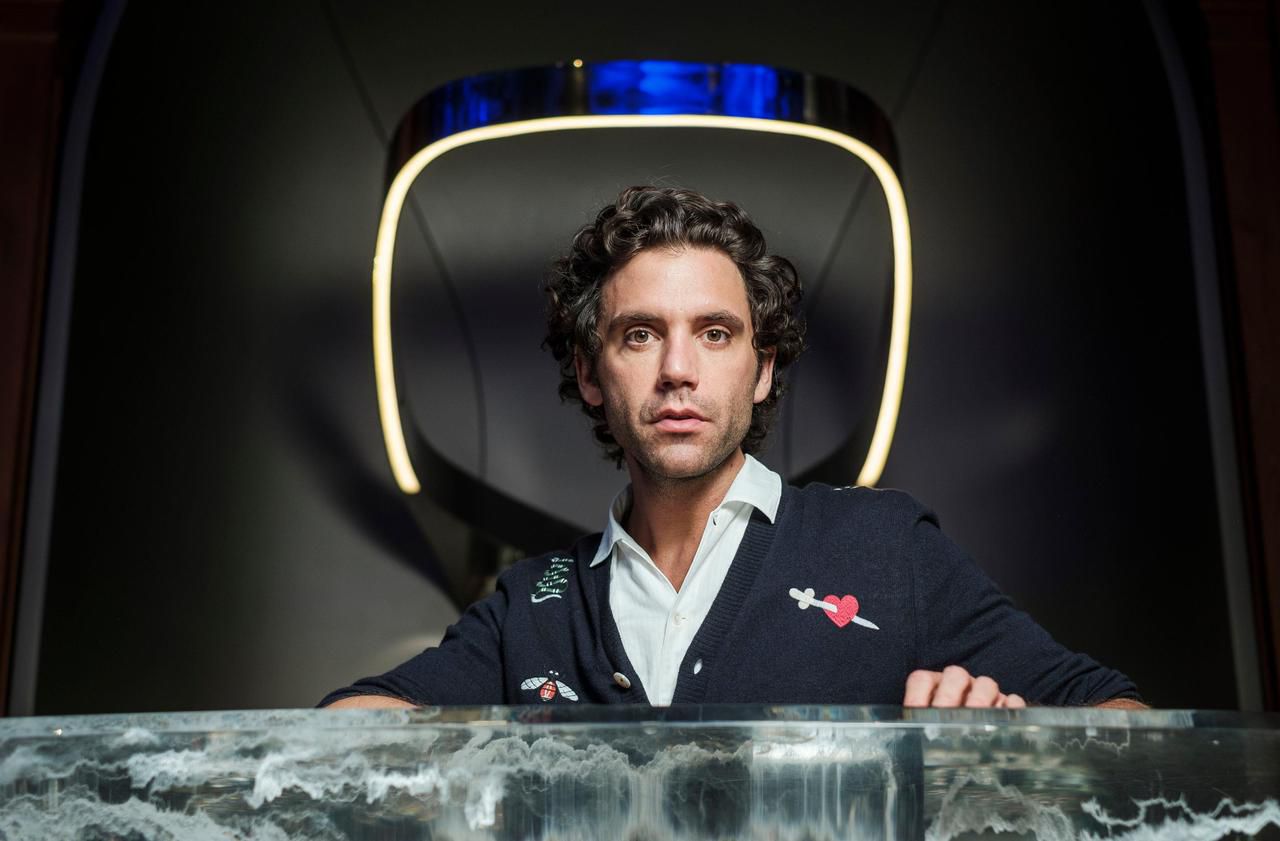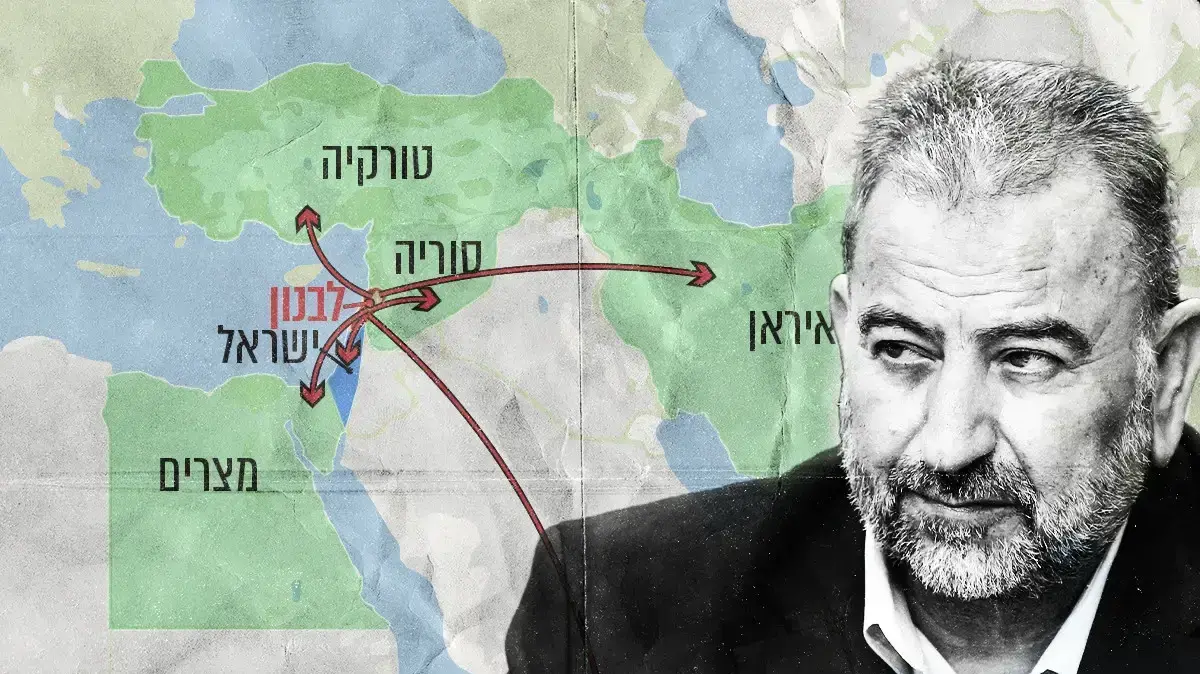Above all, do not remain inactive in the face of tragedy. Mika, born in Beirut in 1983 and whose mother is Lebanese, wants to participate in his own way in the outpouring of solidarity with his country of origin, struck by the tragedy on August 4, when two explosions devastated the capital. He announced Friday the organization of a concert for the benefit of the victims, "I Love Beirut" for September 19. The show will be streamed and broadcast live on YouTube across the world, from his garden in Tuscany (Italy).
On the occasion of the opening of the ticket office this Monday, August 24 at 10 am, the singer confides in this project which is very close to his heart. Profits from the concert will be donated to the Lebanese branches of the Red Cross and Save The Children. At the same time, a partnership with the GoFundMe site will make it possible to collect additional donations for these organizations.
What is the news of your relatives in Lebanon?
MIKA. Like all Lebanese, we know people whose lives have been dramatically changed. My relatives were not injured. But, around them, friends were victims of the explosion, some bruised in their flesh, others suffered material damage. And they all tell me that this catastrophe is a trauma that will leave its consequences for a long time.
You are very attached to your Lebanese roots even though you only lived in Lebanon until the age of one and a half. How do you explain it?
It's quite fascinating, actually. If you speak with anyone who is of Lebanese origins, everyone will tell you the same thing: no matter what percentage of Lebanese you have in you, it is something that stays. In order to cling to this part of their identity, hundreds of thousands of people displaced by civil war cultivate it in their daily and cultural life in their homes. So even though I only stayed there for a year and a half, if you had come to our house afterwards, the carpets came from Lebanon, the food too, we listened to the records of the singer Fairuz in the living room. It's like a mythology of Lebanon that remains alive thanks to the diaspora, suspended in all these little domestic bubbles around the world. That's why when I saw the images of the explosions in Beirut, it shocked me deeply, like many people over so many generations. Such a disaster calls for action, for commitment.
So you have decided to organize "I love Beirut". What will this concert look like?
Newsletter - Most of the news
Every morning, the news seen by Le ParisienI'm registering
Your email address is collected by Le Parisien to enable you to receive our news and commercial offers. Learn more
My main priority is to do something beautiful, that makes sense, with real artistic intention behind it, and that will tell stories. At a time when you become almost oblivious to the statistics you see on the news every day, the responsibility of a musician like me is to communicate emotions and create empathy. It is not enough to simply raise money. I see “I love Beirut” as a 360-degree art project. There is the concert, which I will do in my own garden, outdoors. I also called on technical teams around the world, directors, photographers. There will be different types of content, with music at the center.
Can you tell us more about the guests who will be attending?
It will not be a succession of guests, not a collage of performances on Zoom (Editor's note: a videoconference service) , but a show thought out with a concept, a narration. It will be a concert by Mika with Lebanese, French, Mexican, Italian, American, British participations ...
The last time you were in Lebanon was four years ago ...
Yes, at the Baalbek International Festival (Editor's note: near the Syrian border, on a site of ruins of Roman monuments) and the day of the explosions, it was precisely the anniversary of this concert! It's so weird because that morning, when I was looking at Instagram, a lot of people were posting pictures from the show. That same evening, I was on the Internet looking at dramatically different photos of Lebanon.
What memories do you keep from your concerts in Lebanon?
Delicious emotional chaos (laughs). I've played in different places in Lebanon, but Baalbek is very special. When people are happy, they throw pillows in the air, forming a very beautiful wave that starts at the bottom and slowly comes closer. Inevitably, the cushions end up on stage at some point. Once, we had to stop the concert to free them and reinstall the equipment for 25 minutes during which we played music. People started dancing in the middle of these Roman ruins, it was like a crazy nightclub. We ended up confiscating the cushions we stored in the temple of Jupiter so that I could continue. In Baalbek, people cry, laugh, scream, dance… It really is one of the most beautiful places on Earth for a concert. Obviously, I would have loved that "I Love Beirut" could be played in Lebanon, but it is impossible to date. So we're going to try to be up to it to make it almost as good.
In your letter addressed to Lebanon and Beirut, published in particular in the Journal du Dimanche, you have harsh words against the Lebanese government ...
What I am criticizing is political rhetoric. When the Lebanese Prime Minister says that "those responsible will be held to account" after such a disaster, it is a purely political mirror game. When people lose their lives - 200 dead, 6,000 injured, 300,000 left homeless - we are in the midst of the worst financial and economic crisis Lebanon has ever known, when poverty levels worsen by more and more, this kind of political rhetoric is infuriating.
You go so far as to say that, in thirty years, the land of cedars has become the land of ashes ...
It is characteristic of war. Look at what happened in Syria, the birthplace of so many cultures. The war seizes what is most noble and reduces it to ashes, without any discrimination.
You experienced this harsh reality, especially in 2015, when you visited Lebanon within the framework of the United Nations High Commissioner for Refugees ...
It was a very strong journey, through different regions of the country and in contact with many nationalities and histories. Like those of doctors or engineers who were fleeing Syria and who had lost everything. Then I found myself in a support center located in a secret place in Beirut, dedicated to helping refugees who are members of the LGBTQI community. Some of the most powerful stories I've heard in my life, I've heard them there. What is extraordinary about this kind of commitment is this concentration of life that we come across. This is exactly why the “I Love Beirut” concert has to tell stories, because I know the emotional impact they can have.
“I Love Beirut,” September 19 on YouTube at 9 p.m. KST. Tickets at 10 euros on Ticketmaster on sale from Monday 24 August at 10 a.m. Possibility of making additional donations through the GoFundMe site (not to be confused with the ticket office).








